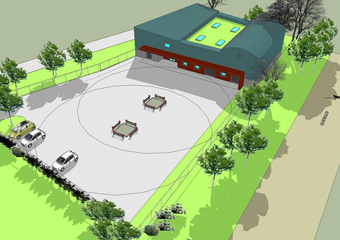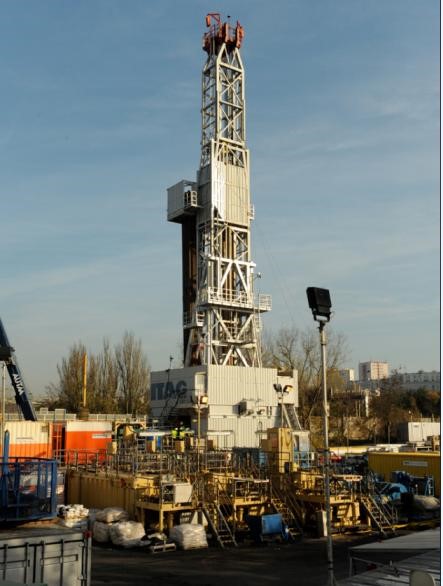After two years of work started in 2014 in Rosny-sous-Bois and Noisy-le-Sec by ENGIE Réseaux, the YGéo geothermal network meets the heating and hot water needs of approximately 10,300 homes.
Following on from the Argéo heating network installed at Arcueil-Gentilly, SIPPEREC (Syndicat Intercommunal de la Périphérie de Paris pour l’Energie et les Réseaux de Communication) has awarded ENGIE Réseaux this second contract to create a geothermal heating system from scratch, and ensure its operation for a 30-year period.
A green project

Thanks to the €33 million YGéo project, Rosny-sous-Bois and Noisy-le-Sec feel the benefit of heating produced from a local and renewable source, as both towns play their part in the region’s energy transition program.
YGéo contribute to meeting the targets set by the Paris Region SRCAE (regional climate, air and energy scheme) to multiply the number of connections to the district heating network by a factor of 1.4, increasing the total number of home equivalents served to around 450,000 by 2020. YGéo reduce atmospheric CO2 emissions by 15,800 metric tons; a figure equivalent to the annual emissions of around 8,600 vehicles.
A powerful geothermal network that also looks good
The 10 MW geothermal power plant will use a geothermal loop to access the Dogger Aquifer (at a depth of 1,800 meters) and heat pumps rated at 7 MW. Flueless and with backup from decentralized gas boilers, this plant is designed to integrate seamlessly into the local urban landscape.
Facing up to increasing energy uncertainty
The inclusion of geothermal will boost the contribution made by renewables to the district heating network to 60%, allowing users to tap into the lower VAT rate of 5.5% on their energy bills. ENGIE Réseaux will also be offering ‘heating vouchers’ to households in the lowest income bracket to help them pay their energy bills, and will also set up a ‘minor works’ fund earmarked to improve user facilities and/or services.
A seven-stage project

- Spring 2013 : preliminary studies begin
- December 2013 : the SIPPEREC committee reaches its decision on awarding the public service outsourcing contract
- January 2014 : signature of the public service outsourcing contract
- Summer 2014 : preparation of the drilling platform
- January 2015 : work begins on drilling the geothermal wells The drilling campaign will take four months to create the two wells of the loop (the production well that will supply the geothermal heating plant and the other to reinject the cooled geothermal water into the aquifer deep below ground).
- Quarter 2 of 2015 : work begins on network pipeline installation and heating plant construction
- December 2016 : the network goes live

